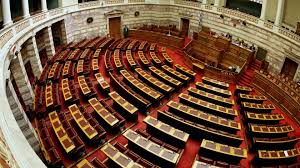
Ten of the top politicians in Greece would be investigated by the country’s parliament on charges that huge amounts of money were accepted by them as bribes from the French pharma giant Novartis against political favors that caused severe loss to the Greek treasury.
The accused politicians include two former prime ministers and eight other ministers and their role would be investigated by a parliamentary committee.
Other political people facing the probe of alleged market preference offering to Novartis in exchange for bribes include Yannis Stournaras - the governor of the Bank of Greece, Dimitris Avramopoulos - Europe’s migration commissioner, ad Greek’s former prime minister Antonis Samaras.
“We will not cover up,” Samaras’s successor, Alexis Tsipras, told parliament. “The Greek people must learn who turned pain and illness into a means of enrichment.”
This scandal has been defined to be the worst since the creation of modern Greece about 200 years ago by officials in Tsipras’ leftist-led administration. And it was hoped that the country would be returning to normalcy after a long period of economic and political turmoil but revelation of this scandal has raised fears of further political instability.
All of the 10 accused have on earlier occasions vehemently denied the charges.
There would be 21 MPs in the cross-party committee and is anticipated to be created very soon. Whether there can be application of the allegations of bribery, breach of duty and money-laundering on the accused individuals according to the strict statute of limitation will be decided by the commission. Before politicians face judicial process for such infractions, they need to be first investigated by the country’s parliament under Greek law.
There are few that question the allegations of wrongdoing. Between 2006 and 2015, about €50m (£44m) were taken as bribes by politicians and others from Novartis against them promoting the company’s’ products and this was first intimated to the Greek authorities by U.S. authorities. Also accused of wrongdoing are over 4,500 doctors. The physicians who had promoted the products of the company were also given paid holidays and home appliances in addition to bribes by the company. These allegations were formed on the basis of witnesses from anonymous people now under government protection.
The scandal is now believed to have played a critical role in t the economic debacle of the country because it resulted in losses of around €4 billion for the health system of Greece.
“Few cases have divided our political life as much,” the political analyst Pantelis Kapsis said.
“Relations have been enormously soured. My biggest fear is political instability at a very sensitive time for Greece just months before its exits its bailout [programme] and prepares to return to markets again.”
(Source:www.theguardian.com)
The accused politicians include two former prime ministers and eight other ministers and their role would be investigated by a parliamentary committee.
Other political people facing the probe of alleged market preference offering to Novartis in exchange for bribes include Yannis Stournaras - the governor of the Bank of Greece, Dimitris Avramopoulos - Europe’s migration commissioner, ad Greek’s former prime minister Antonis Samaras.
“We will not cover up,” Samaras’s successor, Alexis Tsipras, told parliament. “The Greek people must learn who turned pain and illness into a means of enrichment.”
This scandal has been defined to be the worst since the creation of modern Greece about 200 years ago by officials in Tsipras’ leftist-led administration. And it was hoped that the country would be returning to normalcy after a long period of economic and political turmoil but revelation of this scandal has raised fears of further political instability.
All of the 10 accused have on earlier occasions vehemently denied the charges.
There would be 21 MPs in the cross-party committee and is anticipated to be created very soon. Whether there can be application of the allegations of bribery, breach of duty and money-laundering on the accused individuals according to the strict statute of limitation will be decided by the commission. Before politicians face judicial process for such infractions, they need to be first investigated by the country’s parliament under Greek law.
There are few that question the allegations of wrongdoing. Between 2006 and 2015, about €50m (£44m) were taken as bribes by politicians and others from Novartis against them promoting the company’s’ products and this was first intimated to the Greek authorities by U.S. authorities. Also accused of wrongdoing are over 4,500 doctors. The physicians who had promoted the products of the company were also given paid holidays and home appliances in addition to bribes by the company. These allegations were formed on the basis of witnesses from anonymous people now under government protection.
The scandal is now believed to have played a critical role in t the economic debacle of the country because it resulted in losses of around €4 billion for the health system of Greece.
“Few cases have divided our political life as much,” the political analyst Pantelis Kapsis said.
“Relations have been enormously soured. My biggest fear is political instability at a very sensitive time for Greece just months before its exits its bailout [programme] and prepares to return to markets again.”
(Source:www.theguardian.com)





